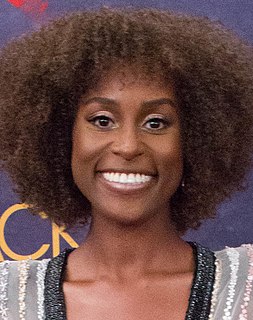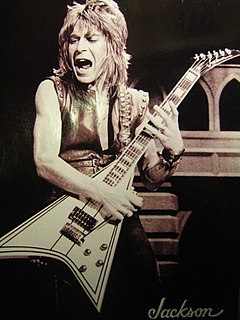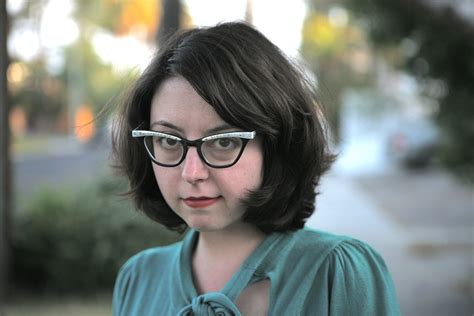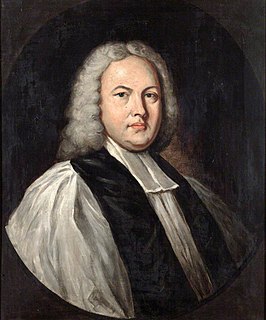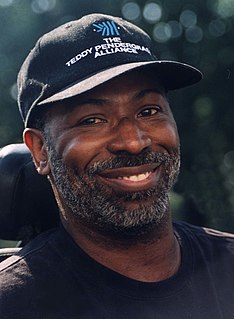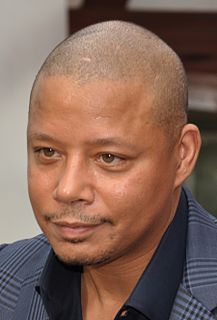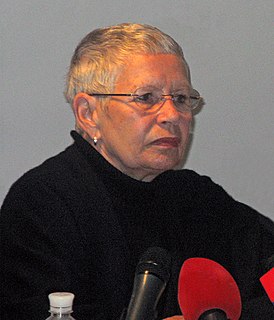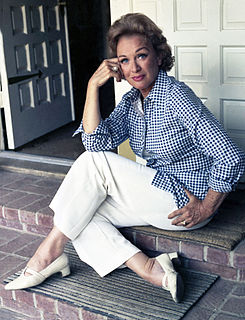A Quote by Issa Rae
I never really had to put much thought into my race, and neither did anybody else. I knew I was black. I knew there was a history that accompanied my skin color, and my parents taught me to be proud of it. End of story.
Related Quotes
Black History is enjoying the life of our ancestors who paved the way for every African-American. No matter what color you are, the history of Blacks affected everyone; that's why we should cherish and respect Black history. Black history changed America and is continuing to change and shape our country. Black history is about everyone coming together to better themselves and America. Black history is being comfortable in your own skin no matter what color you are. Black history makes me proud of where I came from and where I am going in life.
Both of my parents are music teachers. My mother owns the school that I taught in. My brothers and sisters are musicans. My mom pushed me all the time. She knew that I could do it. She knew more than I did. She thought I would go somewhere. She gave me the job and helped me get equipment, which a lot of parents don't do. Alot of my students had to go out and fight for it.
When we're in the story, when we're part of it, we can't know the outcome. It's only later that we think we can see what the story was. But do we ever really know? And does anybody else, perhaps, coming along a little later, does anybody else really care? ... History is written by the survivors, but what is that history? That's the point I was trying to make just now. We don't know what the story is when we're in it, and even after we tell it we're not sure. Because the story doesn't end.
I have a degree in cinema studies and the big paper I wrote at the end of that was about Judy Garland and Liza Minnelli. So I thought that I knew quite a bit about Judy Garland, but I read in passing that the Stonewall riots were a reaction to her death and I had never really read enough to know what that meant or how that could be true. I was interested in that I knew so much about Judy Garland, but I really didn't know this story.
Jem’s eyes had widened, and then he’d laughed, a soft laugh. “Did you think I did not know you had a secret?” he’d said. “Did you think I walked into my friendship with you with my eyes shut? I did not know the nature of the burden you carried. But I knew there was a burden.” He’d stood up. “I knew you thought yourself poison to all those around you,” he’d added. “I knew you thought there to be some corruptive force about you that would break me. I meant to show you that I would not break, that love was not so fragile. Did I do that?
Deep, dark unearthly black. I hadn't told anyone yet, but the color kept streaking across my mind at the oddest moments. When it did, my skin shivered pleasantly, and it was as if I could feel the color tracing a finger tenderly along my jaw, tipping my chin up to face it directly. I knew it was absurd to think a color would come to life, but once or twice, I was sure I'd caught a flash of something more substantial behind the color. A pair of eyes. The way they studied me cut to the heart.
Writers don't often say anything that readers don't already know, unless its a news story. A writer's greatest pleasure is revealing to people things they knew but did not know they knew. Or did not realize everyone else knew, too. This produces a warm sense of fellow feeling and is the best a writer can do.
When I was in high school in the early 1970s, we knew we were running out of oil; we knew that easy sources were being capped; we knew that diversifying would be much better; we knew that there were terrible dictators and horrible governments that we were enriching who hated us. We knew all that and we did really nothing.
